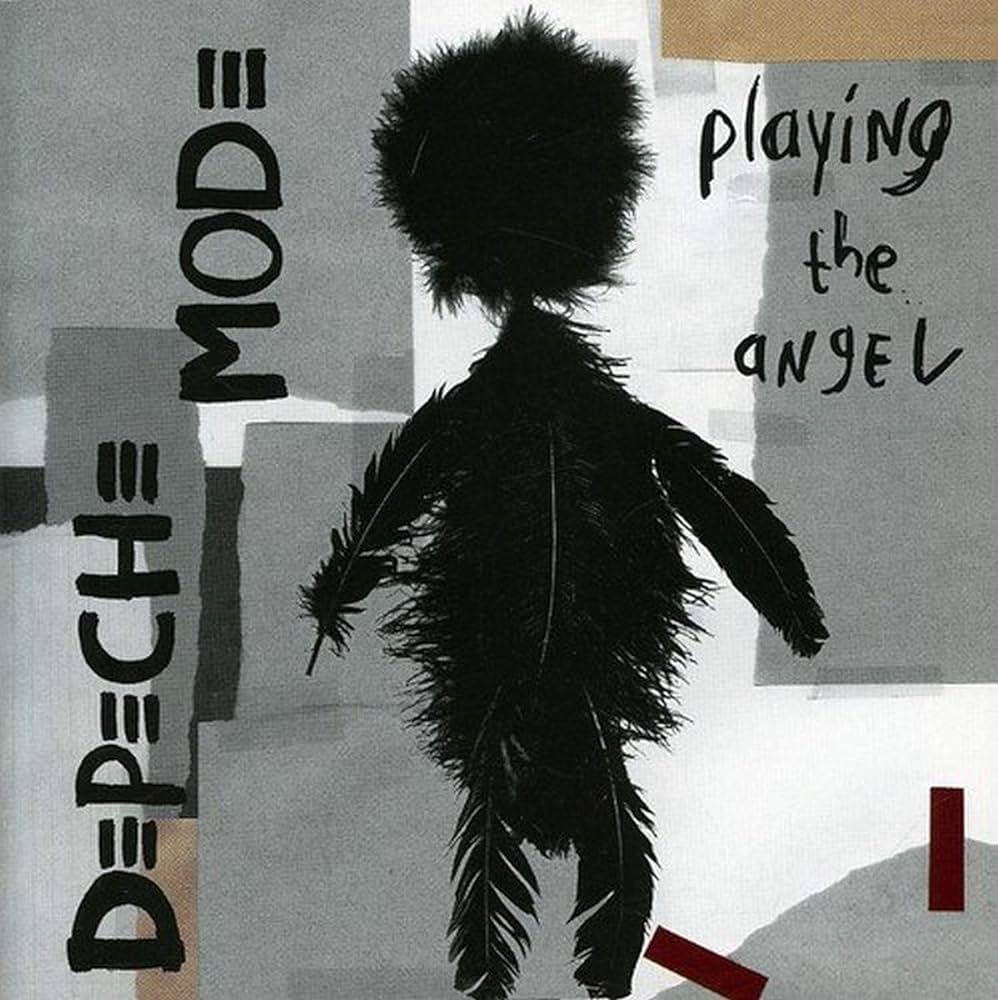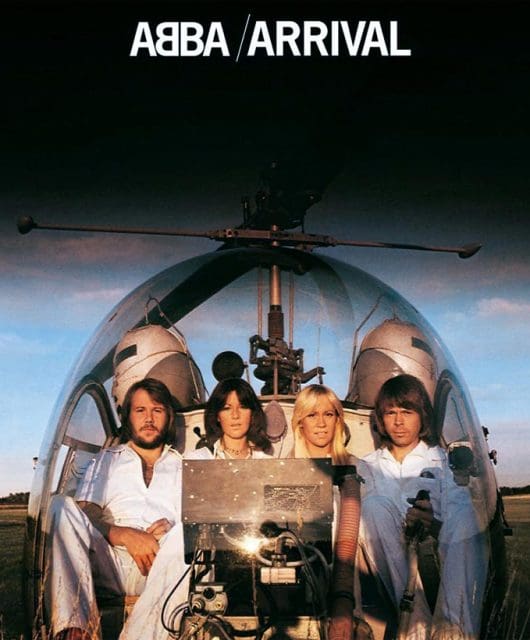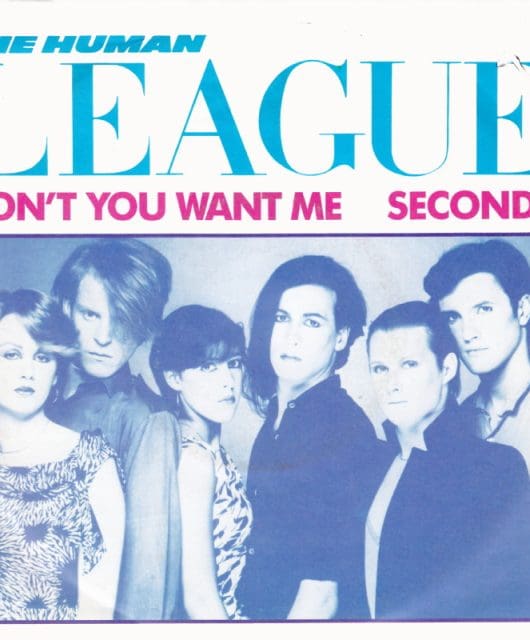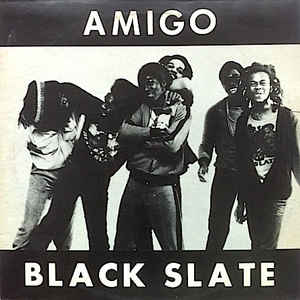Album Spotlight: Depeche Mode – Playing The Angel
By Steve O'Brien | November 22, 2023

Despite inter-band tiffs played out in the press and personal demons coming to the fore, Depeche’s 11th album Playing The Angel drew praise from all quarters…
Prior to Playing The Angel’s release in October 2005 things were not happy on the good ship Mode.
Dave Gahan had been alarmingly vocal about the disharmony at the heart of the band in a series of interviews in 2004, appearing to ridicule Fletch in Q magazine regarding his lack of musicianship, and telling one interviewer the band “wasn’t working anymore, much like the drugs.”
In Rolling Stone, meanwhile, he seemed to send out an ultimatum to Martin Gore: “Unless he’s open to both me and him coming into the studio with a bunch of songs and supporting each other, I don’t see that there’s any point in going on and making another Depeche Mode record… You know what? At this point, I don’t really care.”
Gahan had started talking about Exciter being “Martin’s album but with my voice on it” and was keen to have more creative input.
Gore, meanwhile, refuted claims that he was some kind of “totalitarian dictator” and admitted, somewhat sadly, that, “[Dave] doesn’t talk to me, he talks to the media.”
To fans’ surprise, then, the trio finally regrouped at the end of 2004, with an agreement made that Gahan would contribute to the songwriting on the next record.
“Dave’s songs are really good now,” Fletch told Q in December. “Some of them will earn their place on the album. A while ago he said he had 12 new songs and he’s played nine of them. It was a bit like watching the Eurovision Song Contest.”
For his part, Gore admitted that, had he not agreed to Gahan’s songs being tracklisted on album number 11, there might not have been another Depeche Mode record.
Gahan had originally pitched for a 50/50 split of songs, but eventually settled on three. The singer later admitted that he never expected Martin and Andy to agree to half of the album being written by him with Fletch later saying, “Maybe Martin was generous with three.”
Recording for what would become Playing The Angel started in early 2005 at Sound Design in Santa Barbara, with Ben Hillier (Blur: Think Tank, Echobelly: People Are Expensive, Elbow: Cast Of Thousands) installed as producer.
Unlike Mark Bell, Hillier was no tech-head and was keen to create a more organic-sounding record.
“Exciter was done on a series of laptops,” he told writer Steve Malins, in the book Depeche Mode: A Biography. “It takes bloody ages and it’s very boring for everyone except the person who is actually on the computer. I wanted to have a live, human, performance element.
“That’s why we use a lot of analogues. I like to see a bit of humanism in the music. I think it gives people a way of relating to it and that was the thing that I think was missing from the last record.”
Hillier admits that, initially at least, he was unsure of Gahan’s three songs – Suffer Well, I Want It All and Nothing’s Impossible (Gahan wrote the lyrics, with Christian Eigner and Andrew Phillpott composing the music) – but actually they’re some of the best tracks on the album, particularly Suffer Well, which was released as the record’s third single.
The song would be the first Depeche Mode 7” that was not written by Martin Gore since their debut single Just Can’t Get Enough in 1981.
“When it started out, it was a much slower song and we just decided to go in a really pop way with it,” Gahan told The Wave Magazine. “Which is a contrast to what it’s saying lyrically, which is: Suffer well, because whatever it is you’re suffering, if you suffer well enough, you won’t have to suffer anymore.
“It’s something that was said to me a long time ago, which I did not understand. A guy who was sitting with me and had a lot more experience in life – an older gentleman – said, ‘You know, David, suffer well.’
“And I was like, ‘What the fuck are you talking about? Thanks a lot, man!’ It came back to me a few years ago, what he was really saying: Suffer well, and if you suffer well enough, you can move on.”
It’s not just Gahan who mined some of his darkest experiences on Playing The Angel.
Martin Gore had endured a painful divorce from his wife Suzanne, which he addressed on the song Precious – “Things get damaged, things get broken/ I thought we’d manage, but words left unspoken/ Left us so brittle/ There was so little left to give.”
It’s one of the most gut-wrenching lyrics ever penned by Depeche’s principal songwriter, and, when released as Playing The Angel’s lead single, it climbed to No.4 in the UK chart (though oddly enough it bombed in America, languishing at No.71).
If Ultra and Exciter were, as Depeche Mode albums, slow-burners, Playing The Angel was much more immediate.
Hillier’s raw, propulsive production shoots a bolt of electricity through Gore and Gahan’s songs and led to plenty of reviewers at the time reaching for that well-worn cliché about the record being a “return to form”.
“The best Depeche Mode album since Songs Of Faith And Devotion,” cooed Sputnik Music, while the BBC’s Zoe Street wrote: “The troubled electro kings have come storming back with album number 11: a deeply personal work which shows off Dave Gahan’s dramatic vocals to perfection, and shines with trademark Mode melancholia and
dark sexuality.”
Pitchfork described the album as “one of those signature artefacts of the Adult Band: an album we hardly even need to review. Depeche Mode’s core fans will flip for it; it’s the best thing they’ve released in a long while.”
“It’s the next forward movement on the Depeche Mode trajectory,” wrote Scene Point Blank. “Any surprises here are relatively mild but are completely in keeping with what we know as the best of Depeche Mode.
“We can’t punish the boys for remaining their talented, loveably bleak selves. The bar perhaps hasn’t been raised, but there’s great comfort and consolation in knowing the ball hasn’t been dropped.”
Playing The Angel would peak at No.6 on the UK Album Chart, three places higher than 2001’s Exciter, and ended up on various publications’ Best Of 2005 lists.
Two decades on from its release, it remains a fan favourite, a record that truly gets your heart pumping.
For a band a quarter of a century into their career, to make a record this throat-grabbing is quite the achievement.
- Want more from Classic Pop magazine? Get a free digital issue when you sign up to our newsletter!

Steve O'Brien
Steve O’Brien is a writer who specialises in music, film and TV. He has written for magazines and websites such as SFX, The Guardian, Radio Times, Esquire, The New Statesman, Digital Spy, Empire, Yours Retro, The New Statesman and MusicRadar. He’s written books about Doctor Who and Buffy The Vampire Slayer and has even featured on a BBC4 documentary about Bergerac. Apart from his work on Classic Pop, he also edits CP’s sister magazine, Vintage Rock Presents.www.steveobrienwriter.com





